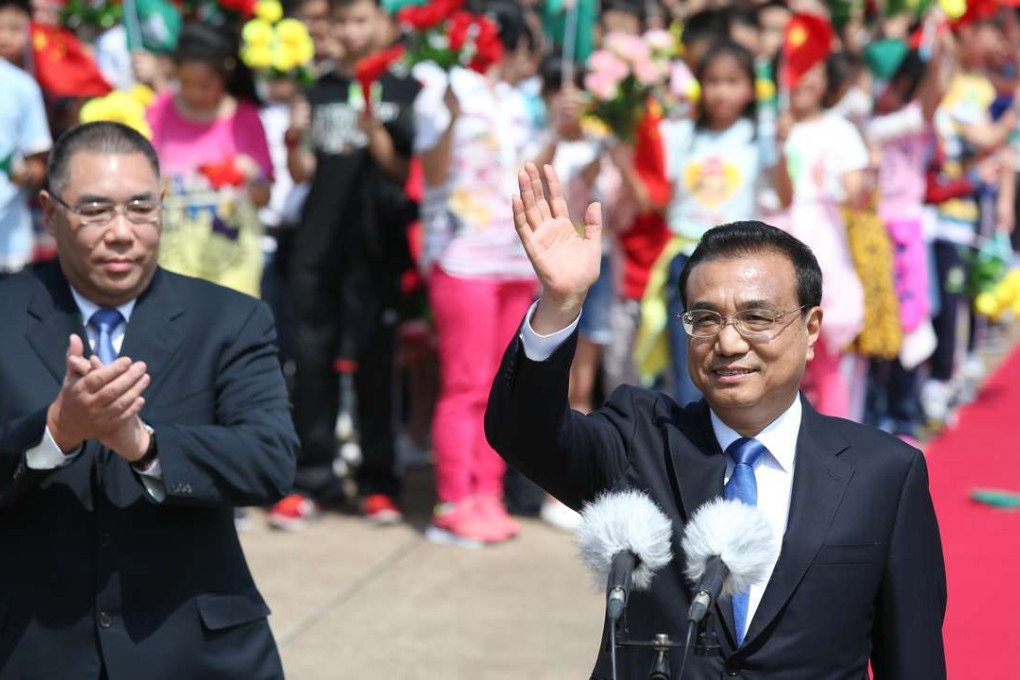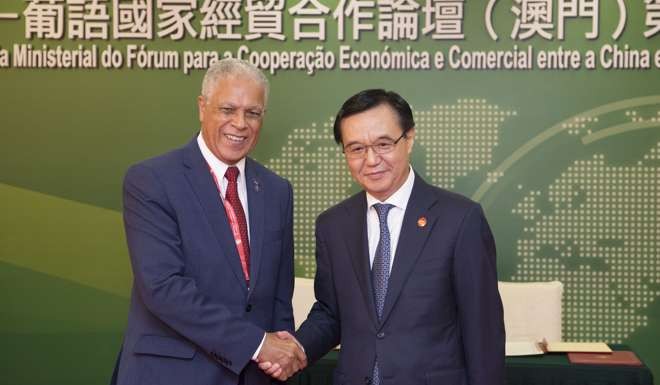Li Keqiang’s presence at Macau forum speaks volumes about city’s valuable Portuguese links
Jiang Xun says the premier’s support underlines Macau’s key role as a bridge between China and the Portuguese-speaking world, particularly in light of mutual ‘Belt and Road’ aims

Acting as host for major international forums, or “host diplomacy”, has been a highlight of China’s foreign policy this year.
Macau’s ties with Portuguese-speaking countries make it a perfect location for China to engage in host diplomacy under the Forum for Economic and Trade Co-operation between China and Portuguese-speaking Countries, also known as Forum Macau.
This week’s event made international headlines as Premier Li Keqiang ( 李克強 ) attended the opening ceremony; the first visit by a central leader since President Xi Jinping (習近平) arrived in 2014 to mark the 15th anniversary of Macau’s return to China.
Chinese premier Li Keqiang gives Macau his seal of approval
Host diplomacy involves high-level, large-scale and far-reaching events. Recent examples include the G20 summit in Hangzhou, the Boao Forum for Asia and the First Lancang-Mekong Cooperation Leaders’ Meeting.
Since the introduction of the idea in 2014, China has been a frequent and skilful user of host diplomacy to flex its muscles on the world stage, in interactions both bilateral and multilateral. In the latest example, Forum Macau involved Brazil, Portugal, Angola, Cape Verde, Guinea-Bissau, Mozambique and East Timor.

Chinese Premier Li Keqiang flies in to chart Macau’s new course
The highlight was the “Belt and Road” initiative, with discussions on finding common ground to develop opportunities, and how the initiative could link up with development strategies of the Portuguese-speaking countries.